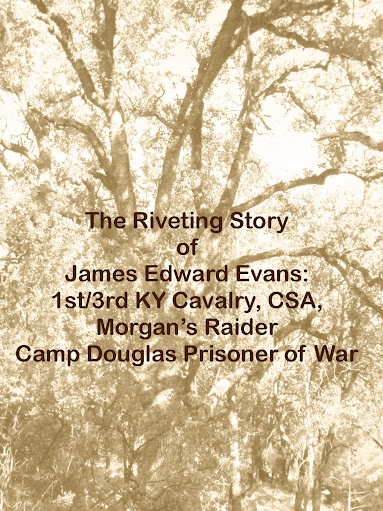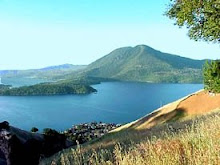By the winter of 1862, the Confederate army had returned to Tennessee after facing disappointment at the Battle of Perryville. They quickly found themselves under increasing pressure from a growing Union presence commanded by General William Rosecrans.
November 9, 1862
John Hunt Morgan sent a request to Gen. Bragg asking to be allowed to conduct independent guerrilla operations. Bragg approved the request and recommended Morgan for promotion to brigadier general.[i]
“Col. John H. Morgan is peculiarly suited for the special service in which I propose to employ him – partisan war on the enemy lines in Kentucky. He has raised his own command, and nearly armed and equipped it from the enemy’s stores.”
~ Gen. Bragg in a communication to Command in Richmond
A great disparity existed between officers and enlisted men. While officers took refuge in homes and inns, common enlisted men were left to fend for themselves in the fields and pastures north of the town. These poor boys huddle before small campfires and tired to find sleep in makeshift lean-tos exposed to the winds and rains.[ii]
While the enlisted men were without the benefit of shelter, they were remarkably well armed.
“Morgan's forces encamped near Murfreesboro, Tennessee, was one of the best equipped and best led cavalry forces in the Confederate Army. Composed mostly of Kentuckians, Morgan's division now consisted of two brigades of seven regiments, with seven artillery pieces and a detachment of scouts. The men were armed mostly with English Enfield rifles, and they normally operated as mounted infantry, using their horses for transportation and dismounting to fight on foot (although they did make mounted charges on occasion, such as when they overran the Federals at Hartsville).”[iii]
The men were constantly on alert as skirmishes between small bands of patrolling soldiers took place frequently.
November 15, 1862
"The first fight we had was near the [Tennessee-Kentucky] state line here we ran into a Yankee Ambuscade and had a right sharp hand to hand fight we had to fall back though as the enemy outnumbered us two to one we made a good many go up before we did retreat though and took several prisoners I had quite a romantic adventure here. I noticed one of the smallest specimens of humanity I ever saw fighting in the Yankee ranks. The little nondescript was bolder than any of them and advanced so closer to our lines that I captured it and what do you suppose it was! Nothing in the world but a little fifteen year old girl dressed up in Yankee uniform she was right pretty and sharp as any full grown Yankee. [...] can assure you she was a curiosity We kept her two or three hours and then turned her loose. I wish we had a Barnum down south I would have sent her to him as a new specimen of the genus homo.”
~ M. A. Harvey, Company B, 8th Texas Cavalry to his niece Eva[iv]
December 1862
Confederate President Jefferson Davis suspended the parole of Union officers following the execution of William Mumford, a New Orleans citizen, by Union General Benjamin F. Butler. In reaction, Union Secretary of War Edwin M. Stanton ordered a halt to all exchanges of commissioned officers. The Dix-Hill Cartel was beginning to crumble.
In the North, the cry to put an end to slavery grew louder.
"Without slavery, the rebellion could never have existed. Without slavery, it could not continue."
~ Abraham Lincoln, December 1, 1862, Message to Congress[v]
“Teach the rebels and traitors that the price they are to pay for the attempt to abolish this Government must be the abolition of slavery. Let the war cry be down with treason, and down with slavery, the cause of treason.”
~Frederick Douglas[vi]
ENDNOTES
[i] Ramage, James A. “Rebel Raider” Chap. 11, p. 127.
[ii] Ramage, James A. “ Rebel Raider,” 1986, Chap. 12, p. 135.
[iii] Trails-R-Us, “ John Hunt Morgan” http://www.trailsrus.com/morgan/etown.html
[iv] Letter from M. A. Harvey to his niece Eva, University of Notre Dame Rare Books and Special Collections http://www.rarebooks.nd.edu/digital/civil_war/letters/harvey-ma/
[v] Rhodes, James Ford. "History of the Civil War, 1861–1865", 1917, page 198.
[vi] Freedman, Russell, “ Lincoln: A Photobiography,” 1987, p. 84.
Sunday, November 9, 2008
Winter 1862
Subscribe to:
Post Comments (Atom)





No comments:
Post a Comment